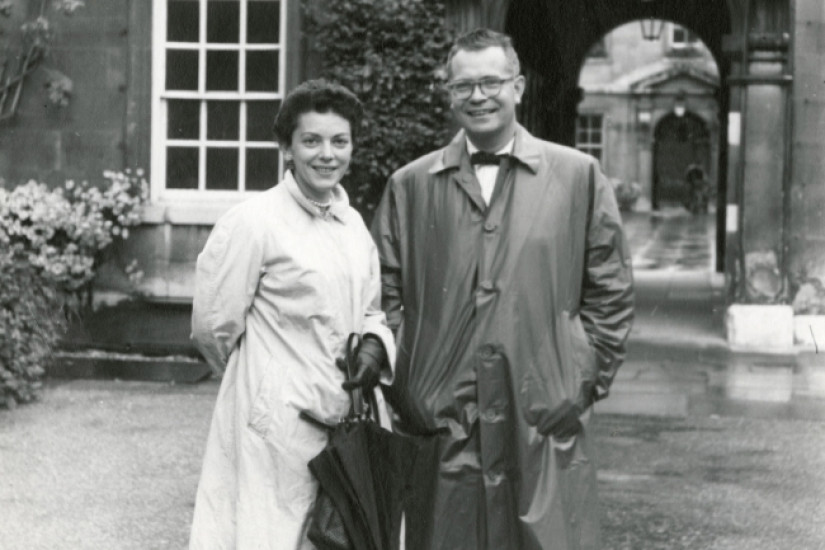For most of the 24 years Richard Hofstadter was a professor in the Columbia University history department — from 1946 until his death from leukemia in 1970, at age 54 — he and his family lived in an apartment near campus, on Claremont Avenue. A disciplined writer, Hofstadter woke early to keep to his daily regimen of three pages. His desk stood toward one end of the front room of the apartment, a double parlor. (French doors separating the two rooms had been removed.) When they were home the children played in this room, and in this room his wife, Beatrice, occupied Mother’s Reading Chair, as the family called it. In the spring they would decamp to Wellfleet, on Cape Cod, where they bought a house in the mid-1950s. As the Hofstadters summered with members of New York’s intellectual elite, the likes of the Kazins and the Trillings, Richard continued writing in the mornings. Beatrice made sure the house was quiet.Nearly all of Richard’s iconic works of history, including the Pulitzer Prize winners The Age of Reform (1955) and Anti-Intellectualism in American Life (1963), emerged from domestic arrangements like this. Both Beatrice and Richard had outlived their first spouses. Both were from Buffalo, though they hadn’t known each other growing up. Soon after they married, in 1947, she adopted his son, Daniel, who was just a toddler. A daughter, Sarah, was born in 1952. For historians who analyze gendered labor in the home, this domesticity raises questions about the role of faculty wives in scholarly production. If nothing else, keeping the crowded house quiet afforded Richard the ability to concentrate. But, in fact, Beatrice did much more.
Beatrice Kevitt Hofstadter (later White) used her skills as an editor to help her husband — contributions he credited in rich acknowledgments. In The Age of Reform, he wrote, “Thanks are due above all to my wife, ... who has developed the art of the editor and the textual critic into a major gift for asking the right questions. Her advice has been indispensable.” She played a large part in the second edition of Social Darwinism in American Thought (1955), originally published in 1944 as Richard’s revised dissertation. As he put it in a prefatory note, “Beatrice Kevitt Hofstadter shared equally with me in the task of revision.” And in a literary profile published several years later, he showed the reporter a passage from Social Darwinism he and Beatrice had polished: “We made — I say ‘we’ because I get a tremendous amount of editorial criticism from my wife — some seven or eight hundred changes, nearly all of them purely stylistic.”
